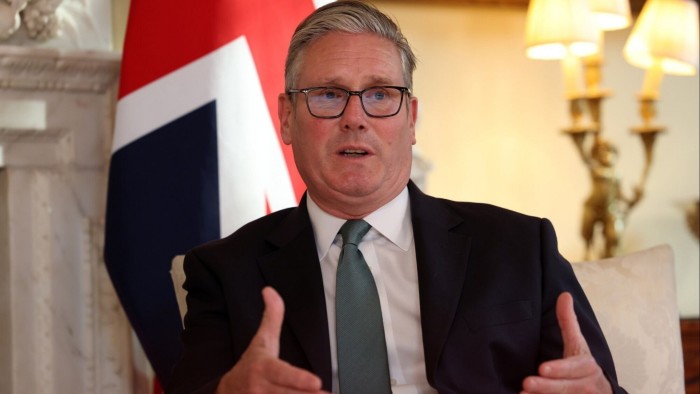This article is an on-site version of our Inside Politics newsletter. Subscribers can sign up here to get the newsletter delivered every weekday. If you’re not a subscriber, you can still receive the newsletter free for 30 days
Good morning. The US bombing of Iran is a major gamble by Donald Trump — and he’s not the only politician who might be worse off as a result. Some brief thoughts on the British implications in today’s note.
Inside Politics is edited by Georgina Quach. Follow Stephen on Bluesky and X, and Georgina on Bluesky. Read the previous edition of the newsletter here. Please send gossip, thoughts and feedback to insidepolitics@ft.com
Local fallout
I’m not going to make any predictions about how the next phase of Israel and the US’s war with Iran might play out, because I don’t know. (Do read Gideon Rachman and Ed Luce on that if you haven’t already, while this is an excellent piece on how the republic’s leadership might respond.)
However, there are some things I think we can say about it from a British end. Keir Starmer spoke to Donald Trump yesterday about the need for Iran to return to the negotiating table, according to a Downing Street spokesperson. The prime minister also put out a joint statement with Emmanuel Macron and Friedrich Merz urging Iran “not to take any further action that could destabilise the region”. The UK government’s position remains: “We don’t want a nuclear-armed Iran — but we are concerned about the viability, and the consequences, of trying to achieve that aim via a military route.” Although this current stance is unlikely to change, it is going to become politically more painful for the government.
That means that Labour will look and sound more equivocal on military action in the region than many of the party’s supporters would like. That will aggravate Labour’s problems with liberal-lefties of all creeds and colours, and the Muslim working class. Both have the potential to make next year’s local elections, in which Labour is defending large numbers of council seats in England’s major cities, very difficult for the government.
In London, the regional party is selecting council candidates much earlier than usual because it believes many more seats will be in play next year — not just places it won in opposition and not just places that the Liberal Democrats won in 2006, but places it has held for decades in good years and bad.
More broadly, an inevitable problem for Starmer’s administration is that one thing that unnerves most British voters (not unreasonably) is the inescapable fact that the world is becoming more dangerous and that everyone in the UK, including the government, is being buffeted by events rather than shaping them.
Hear the FT’s journalists and experts unpack the Israel-Iran war — and the strategic, diplomatic and economic stakes — in an online talk on Wednesday June 25 at 1pm. Register for free here.
Now try this
I’ve just started reading Long Island Compromise, Taffy Brodesser-Akner’s second novel, which is freshly out in paperback. (I really do not care for hardbacks at all.)
Top stories today
-
Industrial effort | Keir Starmer will invest £2bn over four years to cut energy prices by up to a quarter for thousands of businesses, as part of his long-awaited industrial strategy. Starmer wrote in the FT about the strategy’s “decisive backing for eight high-growth sectors — life sciences, advanced manufacturing, digital technology, defence, clean energy, finance, professional and business services and the creative industries”.
-
Cash for ‘game changer’ tech | The UK is to invest more than £500mn in emerging computing based on quantum physics. Industry backers say it will potentially transform areas ranging from the discovery of advanced industrial materials to the imaging of the human body.
-
Pro-Palestinian group to be proscribed | The UK government will move to proscribe Palestine Action as a terrorist organisation, after the activist group broke into the country’s largest RAF base and damaged military aircraft on Friday.
-
Reform takes on non-doms | Nigel Farage will announce a radical tax policy that will offer non-doms the chance to pay a £250,000 fee to shield them from tax. The Reform UK leader wrote in the Telegraph (paywalled) that under the plan, “roughly 2.5mn hard-working Britons” will get this “tax-free annual dividend of £600” sent directly to their bank account. Dan Neidle from Tax Policy Associates reckons the policy would cost £34bn over five years, as well as posing three serious problems.




